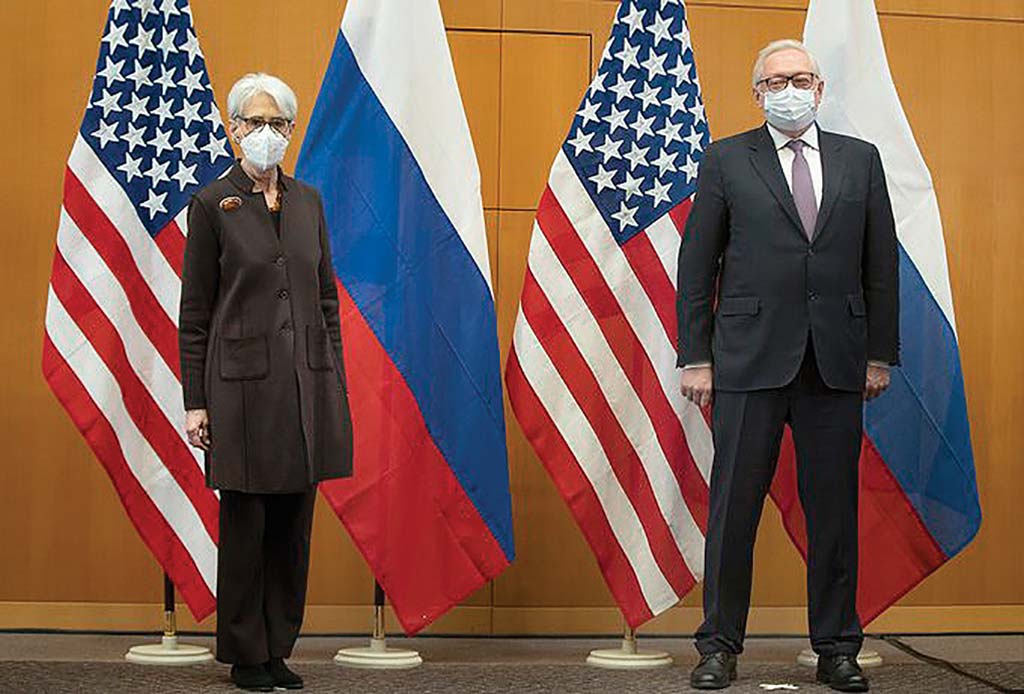KYIV – Three rounds of European security talks focusing on Ukraine and involving U.S. officials and Russia this week resembled a hostage situation. About 100,000 Russian troops armed with heavy weaponry and positioned along its borders have “a gun pointed to Ukraine’s head,” U.S. Secretary of State Antony Blinken said ahead of the first round...
 U.S. State Department
U.S. State Department
U.S. Deputy Secretary of State Wendy Sherman stands beside her counterpart, Russian Deputy Foreign Affairs Minister Sergey Ryabkov, in Geneva, Switzerland, where they met for security discussions on January 10.
